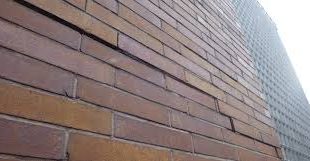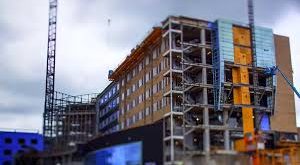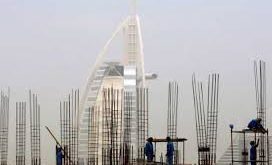Introduction
The real estate market in Pakistan has grown significantly over the past decade, attracting not only experienced investors but also a growing number of first-time buyers and aspiring property dealers. With urban development surging in major cities like Lahore, Karachi, and Islamabad, opportunities to invest in land, homes, and commercial properties have never been more accessible. However, for someone new to the game, stepping into the real estate world can feel intimidating. Understanding legal frameworks, pricing trends, development cycles, and investment risks is essential before making a move. Whether you’re considering buying your first plot in Bahria Town or want to explore high-rise apartments in Lahore’s Gulberg, this guide will walk you through everything you need to know about real estate in Pakistan.
Understanding the Real Estate Landscape
Pakistan’s real estate sector operates in a dynamic and often unpredictable environment. Unlike highly regulated markets in developed countries, Pakistan’s property market still faces issues related to transparency, documentation, and valuation. Yet despite these hurdles, it remains one of the most profitable sectors for long-term investors.
Lahore, in particular, has seen unprecedented real estate growth, with new societies emerging almost every year. Projects like DHA, Bahria Town, Lake City, and LDA City continue to attract buyers due to their planned infrastructure, security, and high resale value. On the other hand, smaller cities like Multan, Faisalabad, and Gujranwala are beginning to follow suit with similarly planned residential communities and commercial zones.
For beginners, the first step is to understand the various types of properties available. You’ll come across residential plots, houses, apartments, commercial shops, and even agricultural land. Each category serves a different financial purpose. For example, a residential plot may offer long-term appreciation, whereas a commercial shop in a busy plaza could generate regular monthly income. It’s important to align your goals—whether they’re investment-driven or personal—with the kind of property you intend to buy.
Legal and Regulatory Basics
Buying property in Pakistan requires close attention to legal details. Far too often, beginners make the mistake of not verifying documents properly, resulting in costly disputes later. Before closing any deal, always ensure the property has a clear title, is free from litigation, and is properly registered with local authorities.
The role of the land record authority, such as the Punjab Land Records Authority (PLRA), cannot be understated. These bodies maintain digitized records that can help you verify ownership, check for encumbrances, and confirm if the land is already sold to someone else. Always insist on obtaining a copy of the Fard (ownership document) and conduct a thorough check before signing anything.
Also, factor in taxes and registration fees. When you buy a property, you are liable to pay stamp duty, Capital Value Tax (CVT), and registration charges. These vary by province, and sometimes by type of property. Consulting a legal expert or real estate lawyer before making a deal is a wise move, especially if you’re buying a property above 10 marla or in a newly launched society.
In the middle of your journey into real estate, you’ll discover that negotiation is an art. Property prices are rarely fixed, and agents often quote a higher rate anticipating a negotiation. Don’t rush. Study market trends, visit the location in person, and compare at least 3–5 properties before finalizing your choice. Platforms like Zameen.com, Graana, and local agencies can help you keep track of ongoing rates and trends.
Financing and Property Valuation
If you don’t have all the funds upfront, bank financing is also available for eligible individuals. Most commercial banks in Pakistan now offer home financing and mortgage loans, although they often come with strict criteria and long approval timelines. Make sure you fully understand interest rates, monthly installments, and what kind of property qualifies under their lending policies. For salaried professionals and overseas Pakistanis, this can be an excellent option to access high-value property without full capital.
Another critical element is proper valuation. Many beginners make the mistake of buying properties based solely on hearsay or agent recommendations. It is important to get your property assessed by a certified evaluator or compare market data from reputable portals. Pricing in real estate depends on multiple factors—location, size, proximity to commercial zones, road access, and future development plans.
If you’re looking to invest, consider the resale potential. A good rule of thumb is to target projects or areas that are under development but have legal clearance and basic infrastructure already in place. These areas tend to offer the best price appreciation over time.
Avoiding Common Pitfalls
Real estate, while promising, is not without risks. Scams, fake documents, unapproved societies, and over-inflated prices are some of the red flags to watch for. One common trap is investing in projects that are heavily advertised but not yet approved by local development authorities. Always check the No Objection Certificate (NOC) from LDA (Lahore Development Authority) or relevant bodies.
Another mistake beginners make is trusting a single source. Always deal with reputable real estate agents and verify their office, CNIC, and agency affiliation. Many first-time buyers end up paying token money or full payment without a written agreement, only to discover that the seller wasn’t the rightful owner. Use proper sale agreements, involve a witness, and keep transaction receipts. Transparency and documentation are the best protections for your investment.
Lastly, remember that real estate is a long-term game. Quick returns are rare unless you’re an expert in property flipping or high-stakes investment. Patience, proper research, and professional advice can go a long way in ensuring your success.
Conclusion
Getting started in the real estate market of Pakistan—especially in booming cities like Lahore—requires more than just money. It demands education, vigilance, and a strategic mindset. The potential for profit and security is huge, but so are the risks for those who act without knowledge. Whether you aim to build your dream home, generate rental income, or simply park your savings for future growth, real estate offers a strong opportunity if approached wisely. Always take your time, research well, and never hesitate to ask professionals for help. In the complex but rewarding world of real estate, a cautious start often leads to smart outcomes.
FAQs
Q1: Is it safe to invest in real estate in Lahore for a beginner?
Yes, as long as you conduct proper verification and invest in approved societies with legal documentation, Lahore is one of the most secure and profitable real estate markets in Pakistan.
Q2: What documents should I check before buying property in Pakistan?
You should verify the ownership document (Fard), ensure there are no pending legal issues, and confirm the NOC from the development authority. It’s advisable to involve a legal expert for this process.
Q3: Can overseas Pakistanis buy real estate easily?
Yes, overseas Pakistanis can buy property in Pakistan legally. Many housing societies offer exclusive blocks or services for overseas investors. Make sure to use official banking channels and verified agents.
Q4: How much tax do I need to pay on property purchases in Pakistan?
The tax amount depends on the location, size, and value of the property. Typically, you’ll pay Capital Value Tax, stamp duty, and registration charges—usually between 3%–5% of the total value.
Q5: Is it better to invest in plots or houses as a beginner?
For beginners, plots are usually safer as they require less initial investment and give you time to plan construction. However, houses offer faster rental income if you’re looking for regular cash flow.
 Bloggers Trend Keeping You Up To Date
Bloggers Trend Keeping You Up To Date







